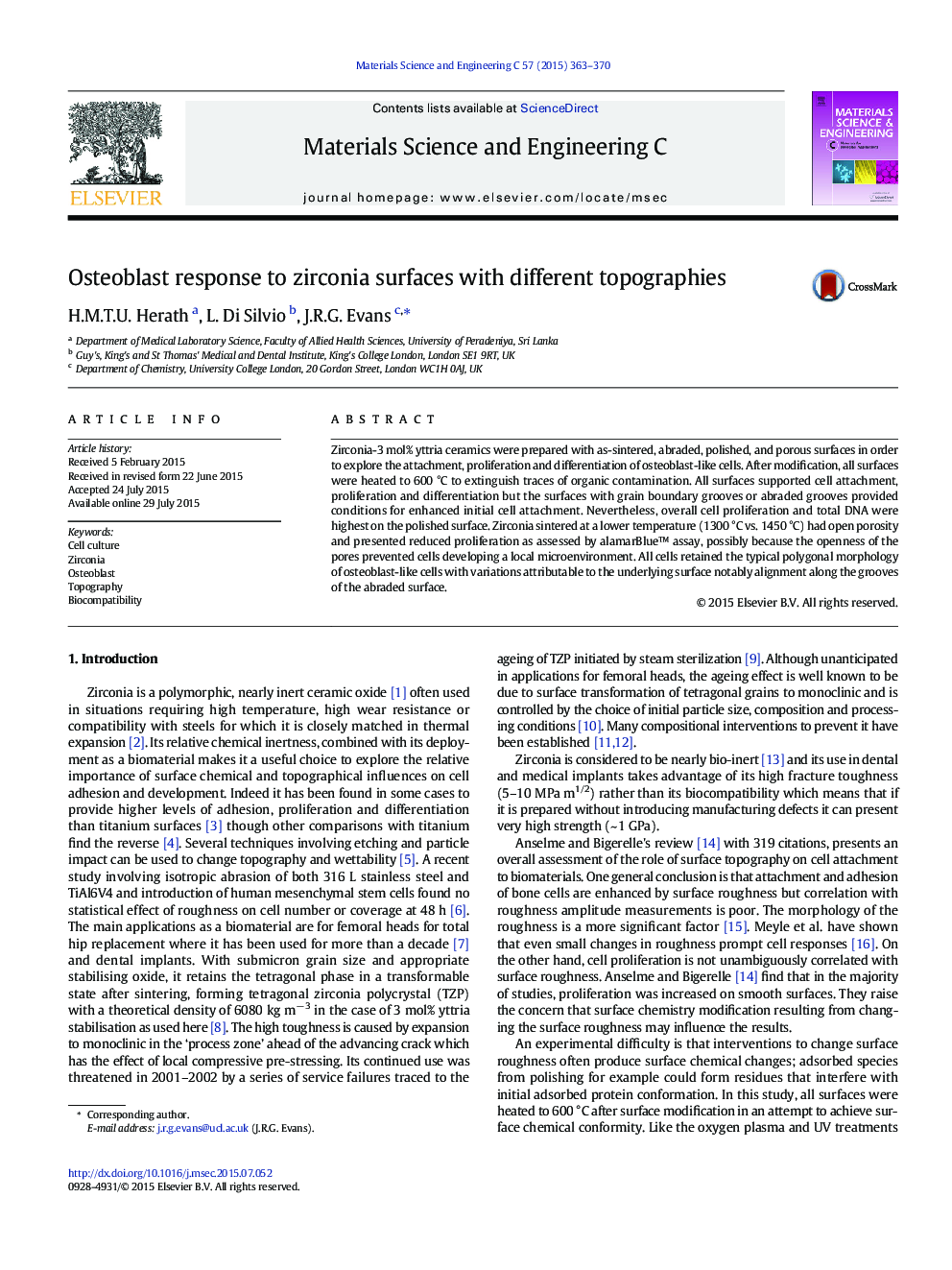| Article ID | Journal | Published Year | Pages | File Type |
|---|---|---|---|---|
| 7868984 | Materials Science and Engineering: C | 2015 | 8 Pages |
Abstract
Zirconia-3 mol% yttria ceramics were prepared with as-sintered, abraded, polished, and porous surfaces in order to explore the attachment, proliferation and differentiation of osteoblast-like cells. After modification, all surfaces were heated to 600 °C to extinguish traces of organic contamination. All surfaces supported cell attachment, proliferation and differentiation but the surfaces with grain boundary grooves or abraded grooves provided conditions for enhanced initial cell attachment. Nevertheless, overall cell proliferation and total DNA were highest on the polished surface. Zirconia sintered at a lower temperature (1300 °C vs. 1450 °C) had open porosity and presented reduced proliferation as assessed by alamarBlue⢠assay, possibly because the openness of the pores prevented cells developing a local microenvironment. All cells retained the typical polygonal morphology of osteoblast-like cells with variations attributable to the underlying surface notably alignment along the grooves of the abraded surface.
Related Topics
Physical Sciences and Engineering
Materials Science
Biomaterials
Authors
H.M.T.U. Herath, L. Di Silvio, J.R.G. Evans,
